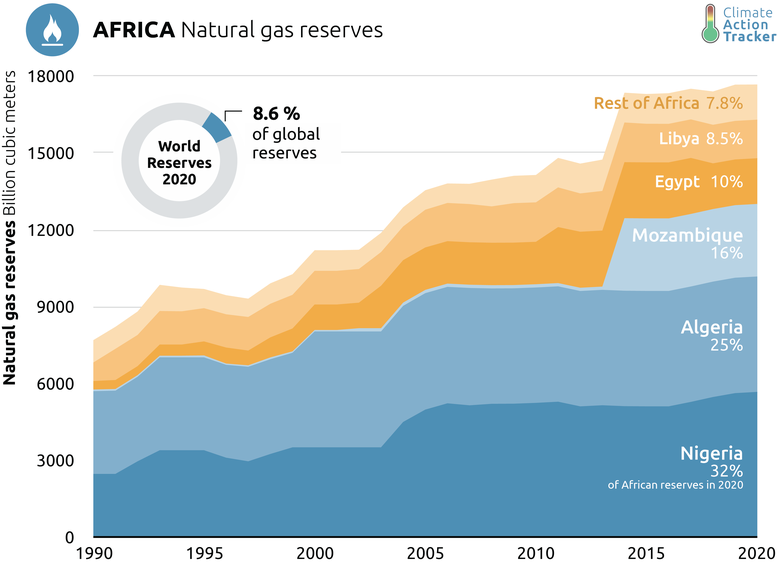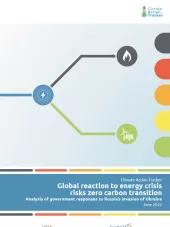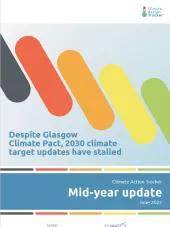Why fossil fuels cannot sustainably meet the continent’s growing energy demand
Natural gas is on the rise globally & in Africa
Fossil fuel use is on the rise, with 70% of the increase in fossil CO2 emissions projected to come from natural gas by 2030 if current policies are not strengthened to align with the Paris Agreement goal to limit global warming to 1.5°C.
To meet the objectives of the Paris Agreement:
- No new investments should be made into natural gas exploration and production.
- Unabated gas-fired power generation needs to be phased out by 2050 globally, and in many countries by 2040.
- Total gas demand would need to decrease by 21%–61% from 2020 levels by 2050.
Africa, like most parts of the world, has plans to significantly expand natural gas production and consumption. This is likely to drive up currently lower emission levels on the continent. Africa is home to nearly 9% of the world’s gas reserves and produces around 6% of global natural gas.

The risks of relying on natural gas are ever more apparent
- The current natural gas infrastructure already supplies the volumes required globally, and any addition is at risk of becoming a stranded asset.
- Development strategies that rely on natural gas production and exports are risky, as the world is transitioning to zero emissions and future gas demand is subject to large uncertainties. Jobs in the fossil fuel industry are not secure: employment is estimated to fall by around 75% by 2050 under a well below 2°C scenario.
- Exploiting oil and gas resources has even proven to be counterproductive to development objectives in some instances: fossil fuel exporters in Africa experience slower economic growth compared to other countries on the continent.
Transitioning to renewable energy has multiple benefits
- Africa has vast renewable energy resources that can supply the continent’s growing energy demand. These resources could also support new export value chains, for example in the form of renewable electricity or green hydrogen.
- Wind and solar energy are already the cheapest sources of electricity—with new installations becoming increasingly competitive even when replacing existing fossil fuel plants.
Climate finance is needed to make this transition happen
- Developed countries, international companies and multilateral financial institutions need to urgently stop financing fossil fuels globally.
- In parallel, developed countries need to significantly ramp up international climate finance and support for the energy transitionin developing countries.







